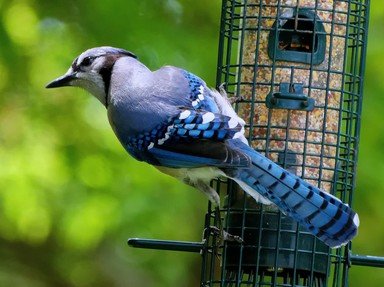Quiz Answer Key and Fun Facts
1. Bird watchers employ an extensive technical vocabulary, and many of the birder's special words apply to particular groups or species of birds. For instance, which of the following would you guess is the moniker applied to a bird that can be found in the company of cows?
2. What the British call an "LBJ" Americans tend to term an "LBB". Drab and difficult to identify, these boring birds have which two characteristics?
3. Birder jargon testifies to the fact that a birder watcher may espy more than birds as he or she gazes into the sky. Which of the following is a featherless, manmade creation propelled by aviation fuel rather than flight muscles? Hint: Some would say it's related to the "stormy petrol".
4. Your twitcher friend is in a tizzy because he missed seeing the Yellow-rumped warblers. How might he inform you of this using the birder vernacular?
5. In British bird watching circles, if you were pronounced "an obsessive and hardened twitcher", what it would it imply?
6. Although a subset of birdwatchers are content to quietly observe common birds in their natural habitat, many birders are devoted list keepers, happily placing a tick mark next to that unusual bird they've just seen. Some are so passionate in their pursuit of that next tick that they stoop to "stringing". Which of the following constitutes "stringing"?
7. Of course, birdwatchers are not always pleased with one another. One birding stereotype is that of the "dude". Which of the following is an ATYPICAL characteristic of a "dude", in the bird watching sense?
8. Your birder friend's eyes take on a far away and misty look as he attempts to explain the term used for the synthesis of shape, color and behaviors that permits the gifted birder to recognize birds by a type of almost mystical gestalt. What is this term?
9. Birders have their little euphemisms. Which of the following is the "collected" bird?
10. You are walking with your birding friend in a public park. You are mortified on his behalf as he begins to pish and squeak. What is your friend doing?
Source: Author
uglybird
This quiz was reviewed by FunTrivia editor
crisw before going online.
Any errors found in FunTrivia content are routinely corrected through our feedback system.
